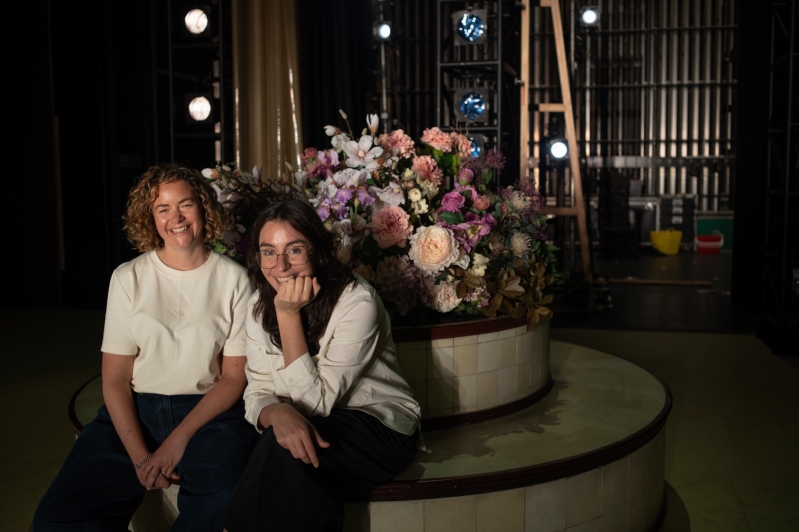Running an opera company is very much like being the mayor of a small town.
We were extremely lucky that, on our very first day in post, The Marriage of Figaro cast started rehearsal on that same day. It meant we got to start our tenure of the Company in the heart of the action and experienced a potent reminder that the engine of live opera is people.
Watching the cast start to feel their way into the characters, first tentatively and then stridently, the director and their team nudge the parameters of their vision ever tighter, the conductor and music staff craft living characters out of Mozart’s score, the stage managers - the synapsis of the whole operation - drawing every department of the organisation together around what was being fermented in the rehearsal room. Just ten minutes in a rehearsal room will quickly dispel the idea of the lone star on stage and make evident the fact that live performance is always a group effort.

And so it continues outside the rehearsal room walls. In our first week we got to see our extraordinary WNO Orchestra on tour in Swansea, brilliantly lead by their Leader David Adams and playing as though they had been drawn together by magic. We sneaked a listen to our wonderful Chorus rehearsing for Figaro and we visited our set building facility, CTS and saw at work the vast networks of skills that it takes to bring opera to the stage: the polish and paint the props and sets and mechanics of opera and theatre from across the world.
Making any live performance is a miracle. It depends on everybody within that vast network from the highly skilled administration team to the welcome at stage door; hundreds of bodies and skills arriving at the right time, forces pulling together, channelling the music together from the moment the score is first cracked open. Anything could go wrong at any minute and yet somehow, everybody focuses their energy on creating something purely out of music and thin air.
It is especially clear how much of a miracle that this is when you consider what WNO, and opera at large have been through in the last few years. First COVID, then, just as we thought we were back on our feet, we have all been subjected to financial pressures that keep pushing the high jump bar ever higher: the increasing costs across all areas of our business, from fuel to timber, train fares to utilities, mounting bureaucracy in European touring and, of course, the well documented financial cuts that the Company has faced over the last few years.
Despite these challenges, we have arrived in the small town ready to shepherd the incredible people that make up WNO to a bright, resilient and defiant future. As in all things, it will be the people in the organisation that will be the key to our future success.
Part of how we do this will be in the work. We have been gifted two shows from our predecessor that, separately and in their own ways, also deal with the complex ecosystems of specific communities. In The Marriage of Figaro, the social ecology of the lascivious Count Almaviva’s country house provides evergreen territory for exploration of the politics of class, all dressed in costumes designed by the legendary Sue Blane. And we are delighted to be premiering a new production of the ultimate small-town opera, Peter Grimes. We couldn’t be happier that Melly Still is joining us to direct: a director whose ambition and visionary use of physical theatre is a perfect fit for the seething violence and wildness of Benjamin Britten’s fictional community of The Borough.
And, of course, the final group of people who sit at the heart of WNO’s extended community are you, the audience. Ultimately the single greatest weapon against the erasure of opera. Every time you buy a ticket and arrive at the theatre it completes the circle: we all join together in commune, the performers and the audience to breathe the same air and share the same space and bear witness to the miracle of live performance.



